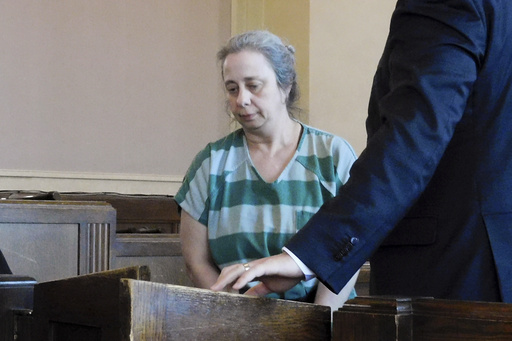MINOT, N.D. — A woman from North Dakota has been sentenced to 25 years in prison for the murder of her boyfriend through poisoning, an act that authorities believe was motivated by financial gain linked to a potential inheritance. The case involves Ina Thea Kenoyer and her deceased boyfriend, Steven Riley Jr., aged 51. Reports indicate that Riley was hospitalized before he passed away on September 5, 2023, after he became seriously ill and lost consciousness.
An autopsy revealed that Riley succumbed to poisoning from ethylene glycol, a substance commonly found in antifreeze, as detailed in the affidavit by a Minot police officer. Kenoyer entered a guilty plea back in May, and on Wednesday, State District Judge Richard Hagar approved the recommendation from both sides of the legal spectrum for a sentencing of 50 years—effectively meaning Kenoyer will serve 25 years in prison, have an additional 25 years suspended, and will also be subjected to 10 years of supervised probation, alongside a restitution payment of $3,455 to Rileys’ family.
Initially, Kenoyer was facing the possibility of life imprisonment without the chance for parole due to the gravity of the charges against her. Concerns regarding Riley’s mysterious deterioration and death prompted his friends and family to alert the local police, raising suspicions that Kenoyer may have administered antifreeze. Witness accounts indicated that Riley’s health was rapidly declining right before he intended to meet with a lawyer to finalize what was believed to be a significant inheritance transaction.
According to the police affidavit, Kenoyer attributed Riley’s condition to excessive alcohol consumption and claimed he had been suffering from a heat stroke in the days leading up to his death. The affidavit further notes that Kenoyer was aware of the potential inheritance—rumored to exceed $30 million—and believed she was entitled to a share, given her status as Riley’s common-law wife. However, it is important to mention that North Dakota does not legally recognize common-law marriages, and investigators were skeptical that the inheritance even existed, based on findings from their inquiries.
